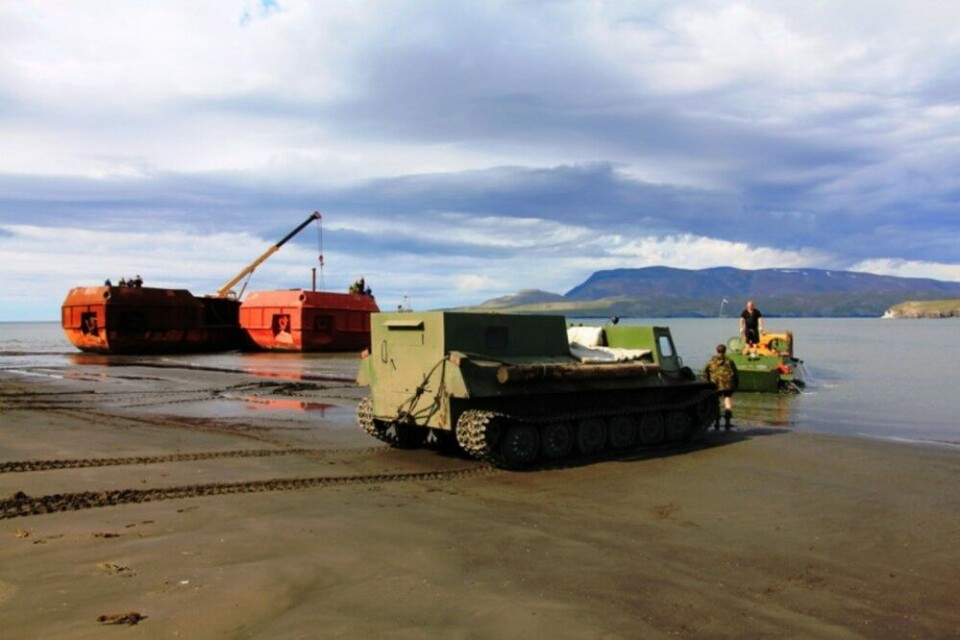
Green light for new seaport in Novaya Zemlya
Russian state experts approve construction plans for the Pavlovskoye seaport in the remote and heavy militarized Arctic archipelago.
p.p1 {margin: 0.0px 0.0px 0.0px 0.0px; font: 11.0px ‘Helvetica Neue’; color: #000000; background-color: #ffffff}p.p2 {margin: 0.0px 0.0px 0.0px 0.0px; font: 11.0px ‘Helvetica Neue’; color: #000000; background-color: #ffffff; min-height: 12.0px}p.p3 {margin: 0.0px 0.0px 10.6px 0.0px; line-height: 20.0px; font: 17.0px Georgia; color: #1f1f1f; background-color: #ffffff}span.s1 {font-kerning: none}
State consulting company Glavgosexpertiza has given thumbs up for the seaport that is to serve the Pavlovskoye zinc and lead mine in Novaya Zemlya.
It is the First Ore Mining Company, a subsidiary of state nuclear power company Rosatom, that is behind the project. It will be one of the northernmost mines in the world.
According to Glavgosexpertiza, the approval is based on repeated submission of engineering studies from site.
Engineers in summer 2018 conducted preparatory works on site. A drilling rig collected sea bottom samples and there were also made assessments of the projected land-based parts of the terminal.
The new seaport is to be built in the Bezimyannaya Bay on the western coast of the Arctic archipelago. It will have capacity to handle up to 500,000 tons of goods per year.
Construction costs are estimated to up to 6 billion rubles (€81.5 million). The terminal will have key importance for the development of the nearby mine. Construction is due to start in year 2020 and production launch in 2023.
The Pavlovsky mine holds an estimated 2,48 million tons of zink and 549,000 tons of lead. The mine is projected to deliver up to 3,5 million tons of ore per year. Included in the project is a processing plant with annual production capacity of 220,000 tons of zinc and 47,000 tons of lead concentrates, Glavgosexpertiza informs.
Novaya Zemlya is closed military area strictly controlled by the Russian Armed Forces.
Between 1973 and 1975, the southern island of Novaya Zemlya was used for larger underground nuclear tests. Of the seven detonations that took place in the area, several ventilated radioactive gases to the atmosphere because the explosions were not deep enough in the ground.
From 1976 to 1990, all underground nuclear tests took place at the northern test-range in the Matochin Straight. Since 1990, only so-called sub-critical nuclear tests have been conducted at Novaya Zemlya.
















